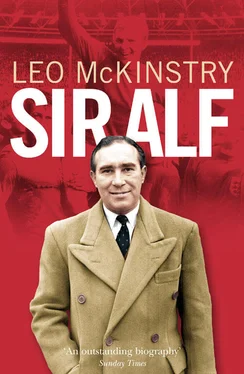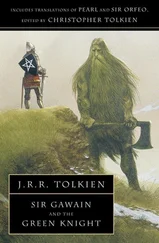The last 25 years of his life were spent in a sad, twilight existence. The lack of money was compounded by the refusal of the football authorities to make any use of his unparalleled knowledge of the game. While football enjoyed an embarrassment of riches from the early nineties onwards, Sir Alf was left in uncomfortable exile, isolated and ignored. As late as 1996, the FA denied him any participatory role in the ceremonies to mark the opening of the European Championship in England. ‘I sometimes look back and become bitter about it. I achieved something perhaps no manager will ever do again, yet the wealth of the game passed me by. I would have liked to have retired in comfort, and have no worries about money, but that has not been the case. And I couldn‘t understand why, after I left the FA, nobody there was prepared to let me work for my country,’ he said in 1996.
This neglect of Sir Alf was symbolized by the absence from his memorial service of a host of key figures from the football world, despite the attendance of most of the 1966 side. Invitations were sent to all 92 Football League clubs, but only five of them were represented. Neither the then England manager Kevin Keegan nor any Premiership manager were present, though there were no fixtures that Saturday. Not one current England player showed up. As Gordon Taylor, Chairman of the Professional Footballers’ Association, put it afterwards: ‘It is amazing. If we cannot honour our heroes, what is the point of it all – and was there ever a greater hero for our game than Sir Alf? Everyone in the English game who could have been here should have been. It is a matter of simple respect.’
But in truth, outside the confines of his England squad, respect was something that Sir Alf had rarely been shown. The reluctance to honour him was not confined to the FA. Ever since the triumph of 1966, he had been the subject of a stream of criticism for his approach to football. His manner was condemned as aloof and forbidding, his methods as over-cautious and ultra-defensive. He was widely seen as the leader who hated flair and distrusted genius, a dull man in charge of a dull team. ‘Ramsey’s Robots’ were said to have taken all grace and romance out of football. ‘Alf Ramsey pulls the strings and the players dance for him. He has theorized them out of the game. They mustn’t think for themselves. They have been so brainwashed by tactics and talks that individual talent has been thrust into the background,’ claimed Bob Kelly, the President of the Scottish FA. The 1966 triumph was belittled as the fruit of nothing more than perspiration, dubious refereeing and home advantage.
Indeed, many critics went even further, claiming that winning the World Cup had been disastrous for British football in the long-term, because it encouraged a negative style of play. Particularly regrettable, it was said, was his abandonment of wingers in favour of a mundane 4-3-3 formation, which relied more on packing the midfield than in building attacks from the flanks. Sir Alf’s enthusiasm for the aggressive Nobby Stiles was seen as typical of his dour outlook, as was his preference for the hard-working Geoff Hurst over the more creative, less diligent Jimmy Greaves in the final itself against West Germany. In Alf’s England, it seemed, the workhorse was more valued than the thoroughbred. The doyen of Irish football writers, Eamon Dunphy, who played with Manchester United and Millwall, put it thus: ‘Alf came to the conclusion that his players weren’t good enough to compete, in any positive sense, with their betters. His response was a formula which stopped good players.’ Similarly, the imaginative Manchester City coach Malcolm Allison argued that ‘to Alf’s way of thinking, skill meant lazy’.
This chorus of criticism reached full volume in the early seventies, when Sir Alf became more vulnerable because of poor results. He was the Roundhead who kept losing battles. As England were knocked out of the European Championship by West Germany in 1972, Hugh McIlvanney summed up the mood against Alf:
Cautious, joyless football was scarcely bearable even while it was bringing victories. What is happening now we always felt to be inevitable, because anyone who sets out to prove that football is about sweat rather than inspiration, about winning rather than glory, is sure to be found out in the end. Ramsey’s method was, to be fair, justifiable in 1966, when it was important that England should make a powerful show in the World Cup, but since then it has become an embarrassment.
Some of the attacks grew vindictive, with Alf painted as a relic of a vanishing past, clinging on stubbornly to players and systems no longer fit for the modern age. His old-fashioned, stilted voice and demeanour were mocked, his lack of flamboyance ridiculed. In early 1973, soon after England had beaten Scotland 5-0 at Hampden, with Mick Channon performing well up front, the satirical magazine Foul! carried a cruel but rather leaden article entitled ‘Lady Ramsey’s Diary’, parodying the Private Eye series of the time about Downing Street, ‘Mrs Wilson’s Diary’. One extract ran:
He’s terribly worried about this Mr Shannon (sic). ’You see, my dear,’ he told me (it’s amazing how different he sounds after those elocution lessons), ‘we just can’t afford to have individuals playing so well. It undermines the whole team effort. Besides, people will start expecting us to score five goals in every game, and we can’t have that.’
The critics had their way in April 1974, when Sir Alf was sacked as manager after eleven years in the post. The FA’s decision was hardly a surprise, given England’s failure to qualify for the World Cup the previous autumn. But it still fell as a painful blow to Sir Alf, one from which he never really recovered. He once explained that only three things mattered to him – ‘football, my country and my wife’. Football had turned out to be a fickle mistress, and for the remainder of his years he carried a feeling of betrayal. ‘Football has passed me by,’ he said towards the end of his life.
Since his sacking, no other England manager has come near to the pinnacle he climbed. When he departed in 1974, it seemed likely that England might one day reach that peak again. In the subsequent 30 years and more, however, the national side has endured one failure after another, with just two semi-finals in major championships during those three decades. Yet it should also be remembered that before Sir Alf’s arrival as manager in 1963, England’s record was equally dismal, having never gone further than a World Cup quarter-final; indeed in 1950, the national side suffered what is still the greatest upset in the history of global soccer, losing 1-0 to the unknown amateurs of the USA. Set in the context of England’s sorry history, therefore, the extent of Sir Alf’s achievement becomes all the more remarkable, putting into perspective much of the carping about his management.
He might not have inspired electrifying football, but for most of his reign he achieved results that would have been the envy of every manager since. Nobby Stiles told me: ‘I cannot say enough in favour of Alf Ramsey. His insights were unbelievable. I would have died for him.’ It is a telling fact that the 1970 World Cup in Mexico is the only occasion when England have ever gone into a major tournament as one of the favourites to win it – in 1966, England, still living with the burdens of their past record, were regarded as outsiders. The status that England had earned by 1970 in itself is a tribute to the supreme effectiveness of Ramsey’s leadership. Moreover, his success in 1962 in bringing the League Championship to Ipswich Town, an unheralded Third Division club before he took over, is one of the most astonishing feats in the annals of British football management, unlikely ever to be surpassed.
Читать дальше












